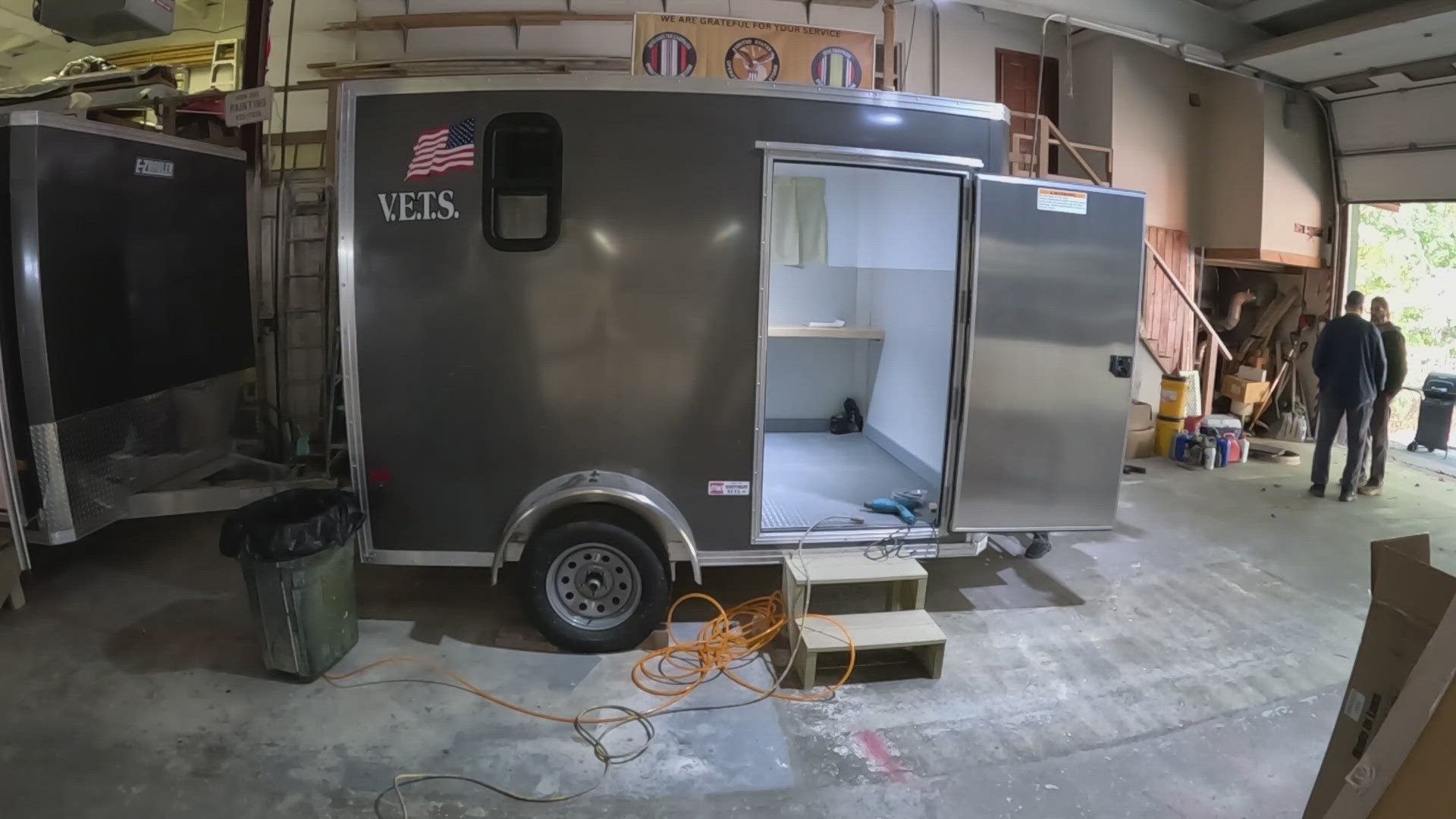BOOTHBAY, Maine — The whine of power saws and the harsh rattle of impact drivers fill the air at the big garage where Boothbay V.E.T.S. has been working for the past five years to provide shelter for Maine’s unhoused veterans.
The V.E.T.S. project—an acronym for Veterans Emergency Temporary Shelters—was started by Vietnam veteran Ed Harmon and Air Force veteran Arthur Richardson as a simple idea to help veterans experiencing homelessness have a shelter while they search for a more permanent residence.
The project converts utility trailers into snug, heated bedrooms, with the idea that the units can be placed beside Legion Halls or other buildings with bathrooms and suitable electric hookups. Some have even been installed beside houses as places for veterans to live.
Harmon and Richardson have attracted about a half dozen other area veterans to help them build the units.
Their work drew the attention of the Maine Department of Corrections (DOC), and that's how word got to Corinne Bailey, the women’s vocational instructor at the Maine Correctional Center. Bailey said she called Harmon and went to see what they were doing.
"I was amazed, first of all, that it could happen," Bailey said as she stood on the shop floor amid several units under construction. "It seems with all the homeless situations we’ve had there couldn’t be this simple solution, but there is."
The DOC agreed to have those imprisoned at the all-male Mountain View Correctional Center in Charleston learn to build the mobile shelters. Bailey thought it an ideal project for women as well, and soon brought a small group from the Southern Maine Women's Reentry Center to Boothbay to learn. Bailey said they are also learning skills that can be useful for finding work when they are released—skills many women don’t learn when they are growing up.
"These skills in particular, construction and whatnot, give women the self-esteem they need to go out and do something for a living and make as much money as then men, and sometimes more. And often they are much better at it because they pay attention to detail. And they do listen."
Harmon and the other vets have nothing but praise for the women workers
"Oh my God, it's one of the most uplifting things that’s happened to us, because when they came and they learned, they are relentless in working ability. And [their] learning capability is remarkable."
The work clearly means a lot to the women doing it.
"It means everything," Rhiannon Welch said.
She said she worked with tools growing up with her grandfather and showed her skill with those tasks by cutting and ripping wooden strapping for the inside walls. Welch has been part of the V.E.T.S. team since the women began coming to the shop in February.
"I’m doing something for a good cause, I’m learning skills for when I leave, and these guys are great, treat us with a lot of kindness and respect, and we feel important every day," Welch said.
For Victoria Scott, who was installing a gas heater in one of the trailers, the work at Boothbay V.E.T.S. has had a similar effect.
"So it immediately felt like coming home to extended family, because we got the most warm welcome, received with non-judgment and optimism and figuring it out with us."
Scott said she is completing a college degree while in the corrections system and had been studying ways to reduce Maine’s homeless problem when the opportunity to work on the mobile shelters presented itself.
"Come build tiny house trailers for veterans in Boothbay," is how she recalls the notice posted at the Women’s Reentry Center.
"That was a sign, that was no coincidence. I needed to do that," Scott said.
Harmon said that by working two days per week, the women are able to complete one of the mobile shelters in three weeks. Their work, along with that of the men at the Mountain View Center, has allowed Boothbay V.E.T.S. to build more of the units. The women were completing one the day we visited, and Harmon said it would be number 42. The men were scheduled to deliver a nearly-finished unit the next day, just waiting for wiring to be installed in Boothbay.
The work is helping more unhoused veterans have safe and warm places to live. For the residents of the corrections system, it's providing something meaningful to do, and teaching new skills.
"Everybody deserves another chance," Harmon said. "And if you believe in people, they do turn around and go on with life."

